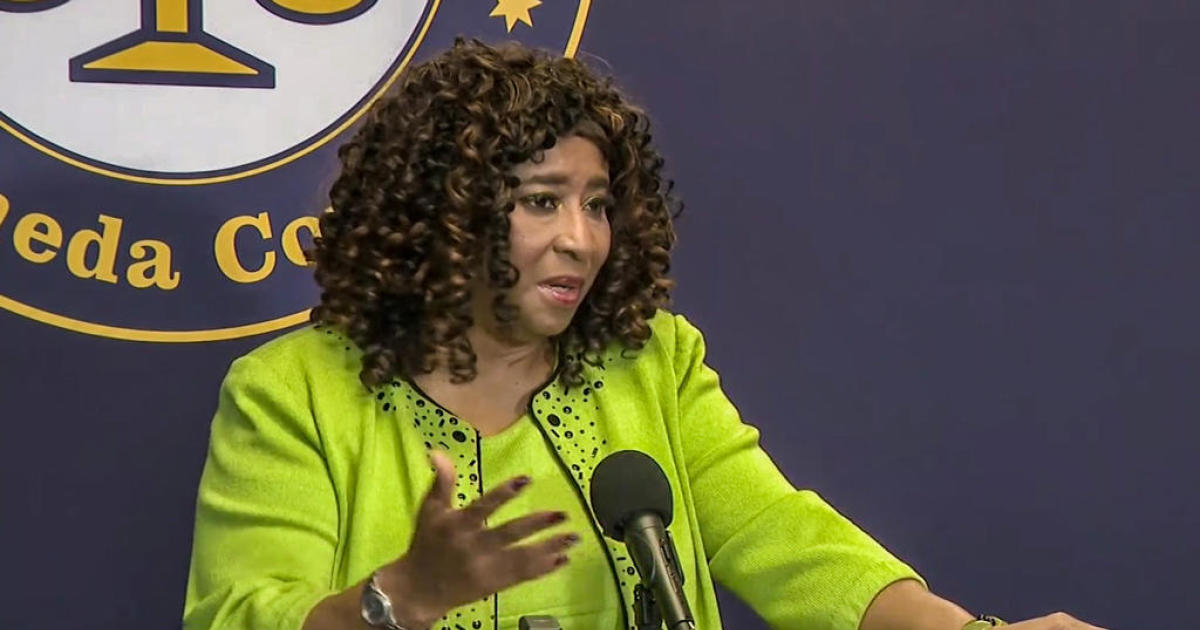State Lawmakers' Offices Rake In Money For 'Select' Committees That Do Little
SACRAMENTO (CBS/AP) -- The California Assembly Select Committee on Community Colleges met just once in its two-year existence, but it provided its Democratic chairman 14 personal aides at a cost of $644,000.
It was one of 68 special committees that were supposed to study issues such as wine, ports and community development in the 2013-2014 legislative session but also provided lawmakers $6.7 million worth of additional staffing, according to an analysis by The Associated Press.
Democratic legislative leaders spread clout and funding for staff by appointing lawmakers to lead regular committees that consider bills. Not everyone can lead these committees, so leaders also create "select" committees that also carry staff funding but don't consider legislation. Some lawmakers use these assignments to develop expertise and inspire policy, but they are not required to hold hearings or issue reports.
An AP review of legislative records show more than half of staff expenses for select committees, or $3.8 million, went to panels that held no hearings or convened once.
"Sometimes the only output is the press release announcing the committee. That's it," said Robert Stern, an ethics expert who led the nonprofit Center for Governmental Studies.
Even committees without taxpayer funding help lawmakers polish their image. They can raise their visibility with district hearings and gain media coverage for their largely ceremonial appointments.
"You've got really big ideas that come out of these (committees) and sometimes smaller ideas that come out of these, but it creates a space to do proactive work that's not bill churning," former Assembly Speaker John Perez, D-Los Angeles, said in an interview.
The committees are another example of how the California Legislature obscures its true operating costs. The $6.7 million staff costs also include employees for select committees that weren't even active last session.
The Assembly and Senate blocked lawmaker spending from public view until news organizations successfully sued in 2011. But the budgets they now release conceal the true costs to run each lawmaker's office by classifying workers as employees of committees rather than aides to legislators dealing with constituents, researching bills and scheduling appointments.
"We end up hiding the budget by making it look smaller," former state Sen. Mark DeSaulnier said of the system.
The San Francisco Bay Area Democrat, now serving in Congress, says his Select Committee on Excellence and Innovation in State Government never met last session because he struggled to find examples to promote. An employee who was paid $165,000 over two years by that committee instead worked on poverty and other issues, DeSaulnier said.
Following critical news reports, former Senate President Pro Tem Darrell Steinberg, D-Sacramento, cut the number of select committees and required senators to submit written requests explaining what the panels would do and how staff would help. The Senate Rules Committee refused to release those records to the AP, citing broad exemptions in the Legislative Open Record's Act.
For the current legislative session, Assembly Speaker Toni Atkins, D-San Diego, did not attach any funding to the 39 select committees she approved, her spokesman John Casey said.
Her predecessor, Perez, authorized $2.2 million in staff funding for nine of the Assembly's 45 select committees last session, but not the ones that held the most hearings or conducted the most work.
The money went to six Democratic lawmakers without traditional committee chairmanships that come with aides. Perez said they made compelling cases that they needed help for additional work. Payroll records released under a public records request show the employees were regular legislative staff.
In 2013, a dozen employees who worked for then-Assemblywoman Sharon Quirk-Silva, D-Fullerton, were paid $425,000 out of the Select Committees on Regional Transportation Solutions and Job Creation for the New Economy, including her field representatives and chief of staff. Each met once. In 2014, the same staffers who remained in her office were then considered employees of Quirk-Silva's new post, the Committee on Veterans Affairs.
Former Assemblyman Steve Fox, D-Palmdale, thought one employee was paid through his Select Committee on Community Colleges. Records show 14 workers were paid $644,000. Perez, who set lawmaker office budgets as speaker, said this was the best way to staff Fox's office after his late election.
Fox said his chairmanship allowed him to meet with community college officials to discuss their accreditation problems and gave him authority to request data from state agencies.
Scott Lay, who led the Community College League of California during Fox's term, said he wasn't aware of the committee's accomplishments.
"Select committees rarely create new policy ideas and that was the case with this select committee," said Lay.
Other select committees can point to results.
Assemblywoman Shirley Weber, D-San Diego, led the Select Committee on Campus Climate created in response to racial tension at colleges. With one paid consultant, the committee held four hearings on college campuses and issued dozens of recommendations that have since prompted legislation.
"She didn't want it to be a show committee," said Joe Kocurek, a Weber spokesman.
© Copyright 2015 The Associated Press. All Rights Reserved. This material may not be published, broadcast, rewritten or redistributed



